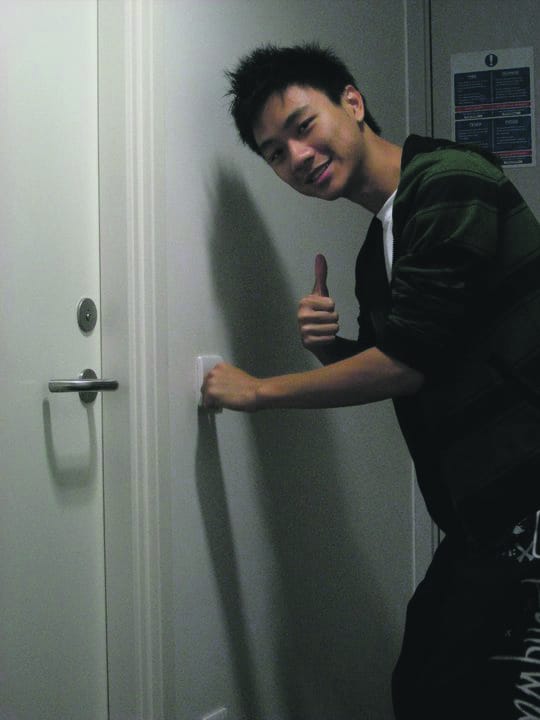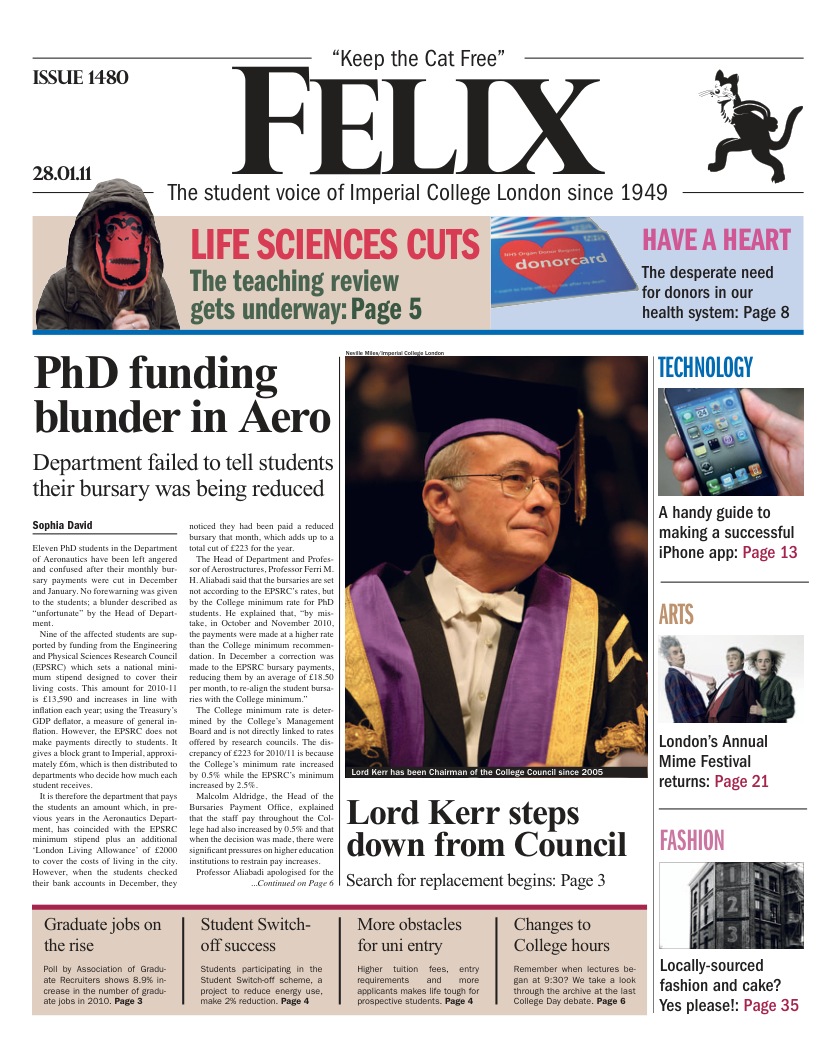Students Switch Off to Success
Students in halls saving energy

The Student Switch Off Scheme, a not-for-profit project aimed at reducing the amount of electricity used in student halls of residence, achieved great success at Imperial last term. Recently released data shows that the 11 participating halls have reduced their energy use in October and November by 2% compared to previous years. According to a press release by the scheme this is enough to make 631,716 cups of tea and has reduced carbon emissions by 11 tonnes. The 223 students involved, representing 12% of those living in halls, have already surpassed last year’s efforts, which organisers believe reduced emissions of CO2 by seven tonnes. Eastside has made the most progress, saving almost 0.60kWh of energy per student per day, making them the best placed to win the free end of year party which awarded to the hall which has made the biggest reductions.
The scheme is part of a national venture involving 37 universities, which include The London School of Economics and the University of Liverpool, and 14,000 students. Its sponsors include Carbon Leapfrog and the National Union of Students. It was created in 2007 by Dr Neil Jennings at the University of East Anglia, where it managed to reduce energy usage by 10% and has gone from strength to strength since then. Last academic year the project helped to save over £292,000 and 2,100 tonnes of CO2.
As well as the end of year party, the Student Switch Off Scheme also runs photo competitions with energy saving themes, with winners receiving Ben and Jerry’s products, LUSH goody bags or tickets to Metric. The title of the latest competition is “Wrap up Warm”. Last term students were invited to screenings pro-environmental films “The Yes Men Fix the World” and “The Age of Stupid”. The scheme’s website (www.studentswitchoff.org/) also has a “how to save energy” page and students can discuss their green ideas on the individual university facebook pages.
This year’s scheme looks set to be a huge success. Dr Jennings says that he believes that it is “making significant environmental and financial savings across the UK” and that the students involved are “playing a part in the fight against climate change”.









